What is the year of the Yang Wood Dragon bringing us?
The Year of the Wood Dragon happens once every 60 years. The last time was in 1964 and the next one will be in 2084. The previous Dragon year was 2012 (Water
Home » Blog » Press & Media » 10 Home Feng Shui Tips For Positive Energy
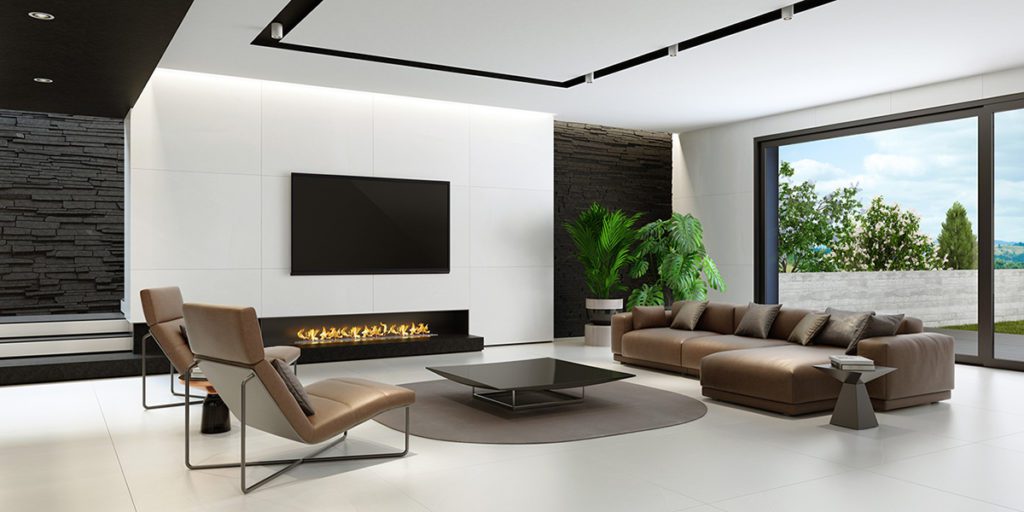
Key takeaways
Can your home decor bring you positive energy, prosperity, and overall good vibes? For people who subscribe to the ancient philosophy of feng shui, the answer is yes.
Based on Chinese practices that date back more than 3,000 years, feng shui (translated as “wind-water”) is a method of arranging objects to create a certain kind of harmony. It caught on with US interior designers in a big way in the 1990s.
Feng shui holds that a life force or energy called qi (sometimes spelled chi) can be guided so it flows in beneficial ways. By working with, and balancing, its 5 basic elements, you can enhance or adjust the qi in your home and life, says Anjie Cho, a New York City-based architect and feng shui consultant who cofounded the online Mindful Design Feng Shui School.
Each of the 5 elements stands for—and is believed to foster—certain virtues, including the following:
In feng shui, personal well-being is also tied to nature. So practitioners recommend that homes pay tribute to the great outdoors by bringing some parts of it inside—as well as choosing inanimate objects that mimic those attributes. For example, feng shui recommends using curved shapes, rather than rectangles and squares, in home design.
Bottom line, a room with good feng shui should make you feel upbeat, in control, less stressed—whatever you need to live your best life. “Our homes are sacred spaces,” says Francoise Courty-Dan, owner of Los Angeles-based One World Feng Shui. “Feng shui is a great way to bring more positive impact into our family and the world.”
Here are 10 feng shui tips for improving your home’s energy.
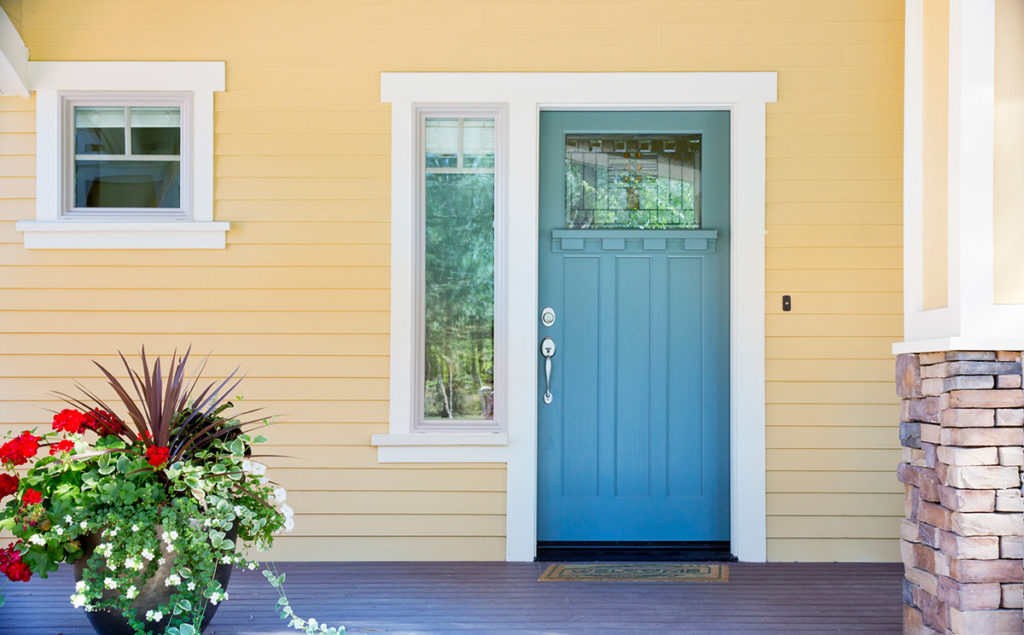 In feng shui, positive home energy starts at the entrance.
In feng shui, positive home energy starts at the entrance.
“The front door is very important in feng shui, because that’s where the qi comes in and energizes the entire house—whether the door is open or closed,” says Courty-Dan. “You want that space to be kept clean and free of clutter, no spiderwebs or chips. Don’t keep your trash can outside the front door, either.”
In feng shui, the color of your front door affects the type of energy it attracts. For best results, experts recommend painting it a hue that’s in sync with the direction it faces:
Whatever color you choose, it should match your personal taste—that, too, promotes positive energy, says Courty-Dan. “If you don’t like the color, don’t use it,” she advises.
Cost: Painting your front door will require less than a gallon of paint, possibly just a quart. You can pick up a quart of either latex paint or oil-based paint—the types most often used for exterior doors—for around $20.
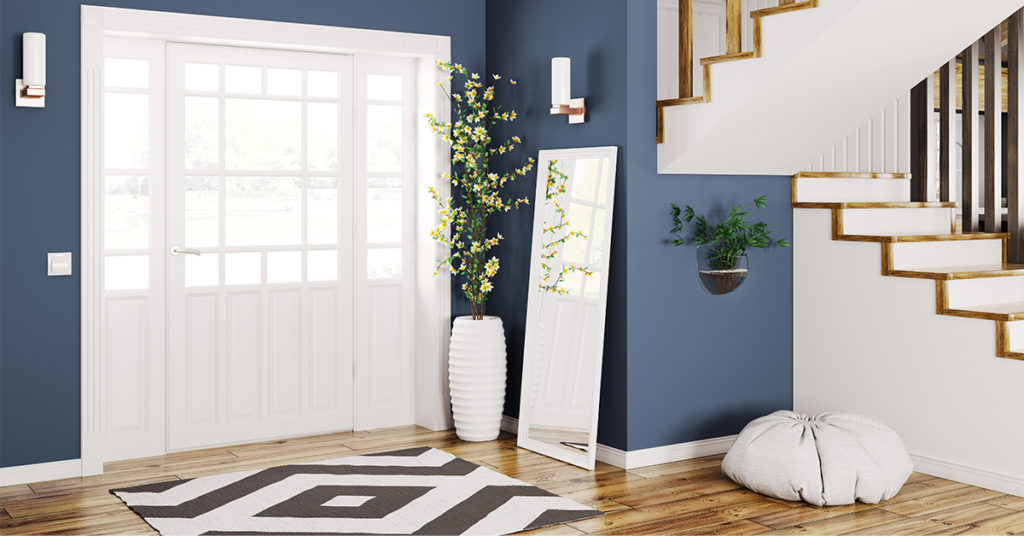 Strategic mirror placement can “double” good energy, feng shui experts say.
Strategic mirror placement can “double” good energy, feng shui experts say.
Because the foyer sets the tone for the entire home, it’s helpful to place a mirror to the right or the left (not in front of) of the door. Mirrors and other reflective surfaces have great significance and power in feng shui. Positioned properly in the entryway, they amplify positive energy and provide a sense of expansiveness from the moment someone walks in.
Pro tip: Never place mirrors opposite each other, because they “cancel out each other’s energy,” says Lois Kramer-Perez, a feng shui consultant based in Paramus, New Jersey.
As with other home elements, mirror design should reflect nature, says Devin Shaffer, lead interior designer and feng shui spokesperson for the online design firm Decorilla. “We’ll do mirrors in organic shapes like ovals, and frames that use natural material—maybe copper or wood, or fabric-wrapped.”
Then there’s the foyer itself, where visitors often drop their shoes and coats. Items left on the floor interfere with energy coming in the front door. Shaffer suggests adding a wall system to store these items tidily.
Cost: A mirror and wall system typically go for $400–650.
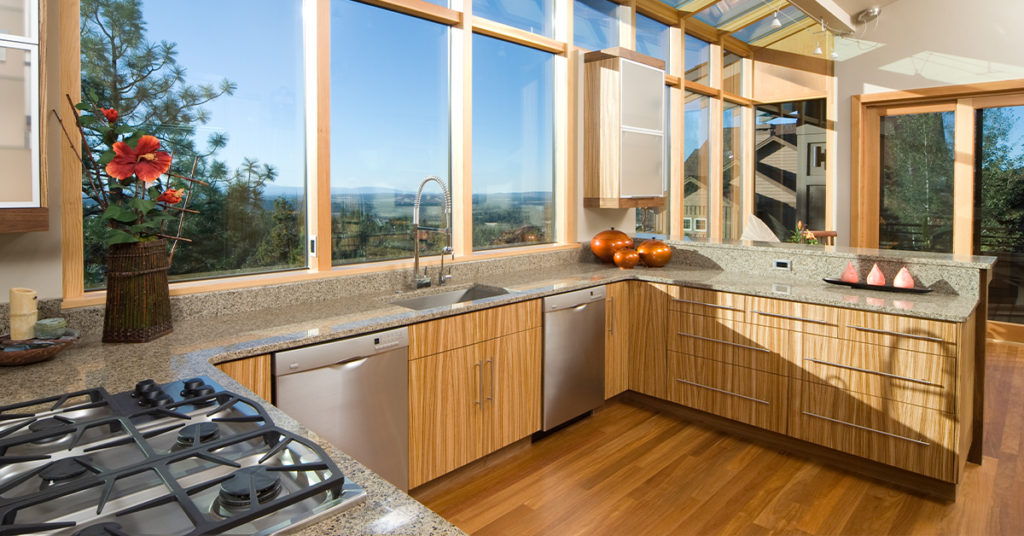 For a relaxing kitchen, go for warm colors and touches of nature.
For a relaxing kitchen, go for warm colors and touches of nature.
Photo: One World Feng Shui, Los Angeles
While restaurants sometimes paint their walls in “fire” colors like red to encourage high consumption and hot social action, you’ll want a more relaxed energy in your home kitchen. In feng shui, that means shades of white, yellow, green, gold, or terra cotta, Kramer-Perez says.
Before you paint, spend some time thinking about the colors your family would enjoy, she adds. “Feng shui is about you and your space, so it’s important for you to love the color.”
Another crucial feng shui requirement: Always keep the stove and oven clean. “Your stove is the heart of your kitchen—it’s feeding you,” says Kramer-Perez. “Don’t store things in your oven, even if you don’t use it often.”

Pro tip: A stove’s burners represent abundance, so adding a backsplash with a reflective or mirror-like surface “doubles your prosperity,” feng shui consultant Lois Kramer-Perez says.
For some inexpensive good energy, try using bamboo dishcloths instead of ones made of microfiber or other synthetic materials. Bamboo and other natural fibers encourage well-being, Shaffer explains.
Cost: To paint a medium-size kitchen with 2 coats, you’ll need 4 gallons of paint, totaling about $100–220. A professional painter will charge $400–900. Reflective backsplash tile costs about $35–70 per square foot when professionally installed, but you can purchase DIY kits for about $50.
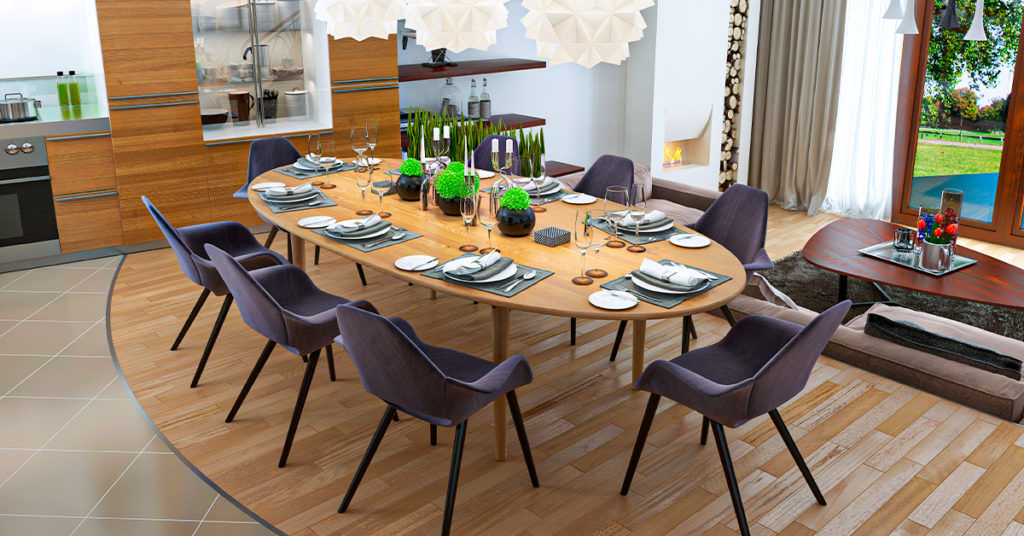 Welcoming guests around a large, rounded dining table can help strengthen relationships.
Welcoming guests around a large, rounded dining table can help strengthen relationships.
The space where you eat has an important role in feng shui.
“A dining room can be a place to strengthen relationships, gain nourishment, and have great community [gatherings],” says Katy Byrne, a Denver-based interior designer with Decorist, an online home-design company, who has worked with a feng shui master.
In this area, feng shui calls for “as large a dining table as possible, while still maintaining a good traffic flow around the room,” she says. “A round or oval shape helps soften the path of energy.” (For a square or rectangular table, you can achieve the same good vibes by placing a large, round area rug underneath.)
Cost: A typical designer’s fee would be $599 for the dining room, not including new furniture or materials. A lovely table, 6 chairs, and a nice area rug could cost as much as $5,000 due to supply-chain problems. To save money, consider high-quality used options as well. “You don’t need anything brand-new to accomplish your feng shui goals,” Byrne says.
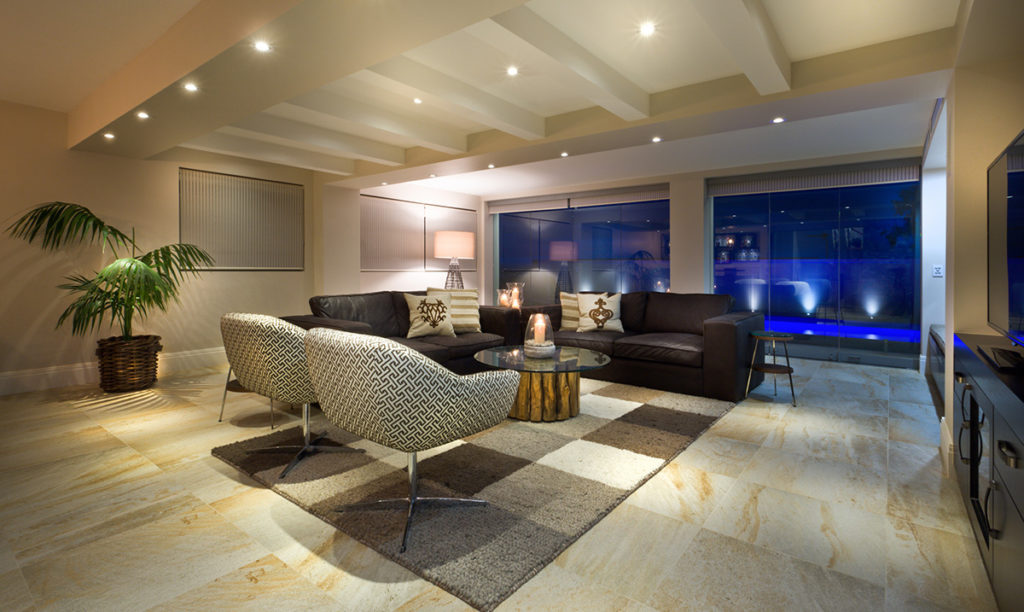 Your living room should have plenty of seating for family and visitors.
Your living room should have plenty of seating for family and visitors.
The living room should have comfortable seating for everyone in the household, preferably with seats facing each other. That will “encourage conviviality” and help make each person feel at home, Courty-Dan says.

Pro tip: “If you just have a couple of seats in the living room, you’re saying ‘no room for you,’ ” according to feng shui consultant Lois Kramer-Perez.
Avoid facing your sofa away from the entrance. According to feng shui principles, coming into a living room and seeing the back of people’s heads is alienating.
Cost: A natural-fabric living room set starts at around $1,500.
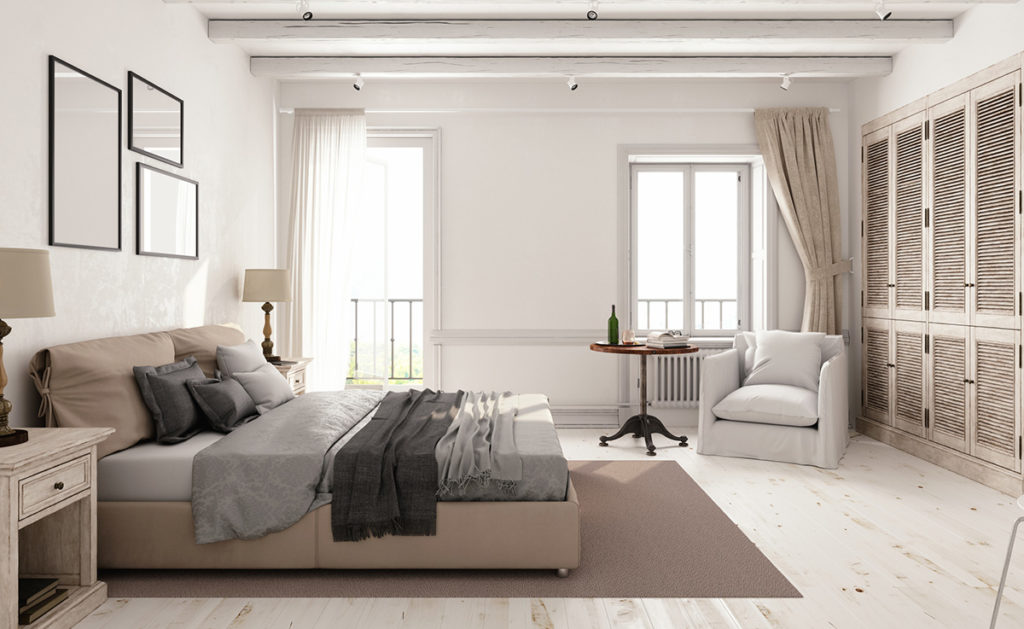 Restful energy in the bedroom requires natural materials and soothing lights.
Restful energy in the bedroom requires natural materials and soothing lights.
In feng shui, your bedroom design is especially important. That’s because “when you’re sleeping, you’re very susceptible to energy around you,” Cho says.
Make sure you have natural, high-quality bedding materials, Shaffer notes. “Always look at labels to make sure there aren’t chemicals,” he says. “You’ll want Egyptian cotton, unbleached cotton, bamboo fills, buckwheat pillows, and barley hull pillows.”

Pro tip: Nightstands on either side of the bed should match. If one is big and the other is tiny, it can create uneven energy, says Devin Shaffer, an interior designer with Decorilla.
Lighting can also affect energy flow. Use table and floor lamps, or a dimmer switch, to avoid harsh glare. Shaffer also suggests experimenting with color-changing “smart” light bulbs to find a hue you like.
Cost: Egyptian cotton sheet sets cost $100–500, but you can sometimes find high-quality bedding at discount retailers such as Target and H&M.
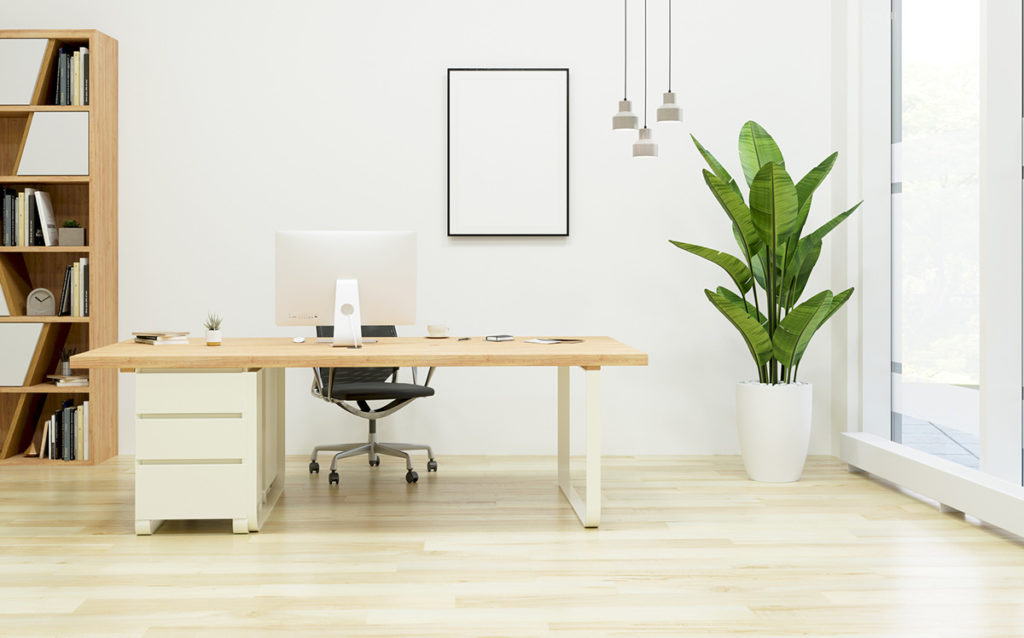 Take a “commanding” position in your home office for a sense of focus and control.
Take a “commanding” position in your home office for a sense of focus and control.
When working at home, you should have a dedicated workspace. Working in an area meant for other activities, such as the kitchen table, can divide your focus.
Another feng shui no-no: Placing your desk against the wall of a home office. It should sit in the middle of the room, at an angle that allows you to see the door. “Feng shui teaches that you’ll feel in control with the wall behind you and a commanding position toward the door, so you can always see what’s coming,” says Kramer-Perez.

Pro tip: “When your back is to the door, you’re ‘turning your back’ on opportunity,” says feng shui consultant Lois Kramer-Perez.
And beware a tangle of power cords. Find a safe and inconspicuous way of running cords to your mid-room desk, either using a cord protector or having an electrician install a floor outlet. But make sure to unplug anything you don’t use regularly—in feng shui, overloaded outlets mean jumbled-up energy.
Cost: You’ll pay about $350 to have a designer help configure the room and hide power cords in a safe and attractive way.
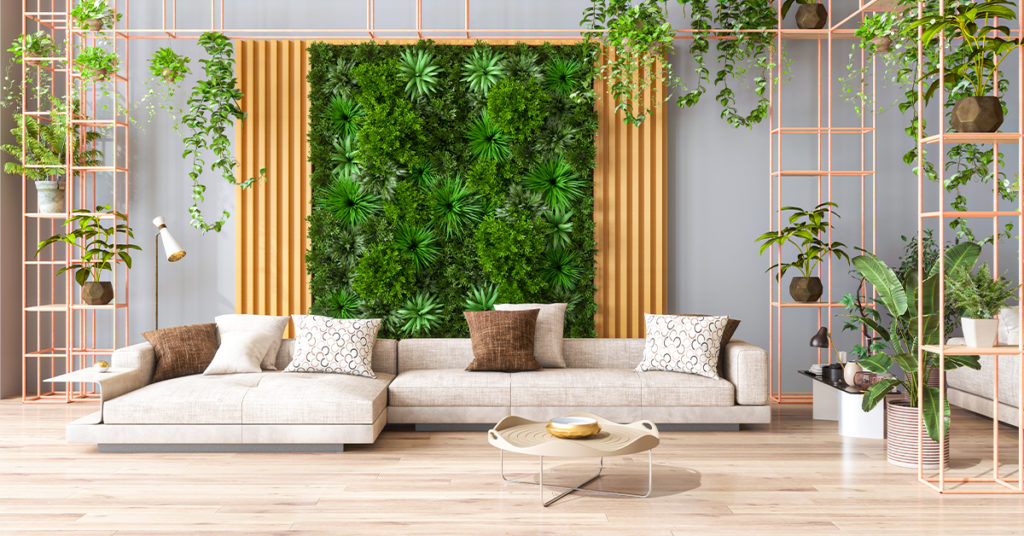 Different indoor plants represent different types of energy.
Different indoor plants represent different types of energy.
“Indoor plants are a big deal in feng shui, because you’re bringing life into your space,” says Byrne. She recommends succulents, such as jade and aloe plants, because they’re easy to maintain. (Cactus plants are another good choice, but keep them out of the bedroom unless you’re trying to get rid of someone—“the prickly energy can be like shooting daggers at people,” Kramer-Perez says.
Go for plants that look as if they’re fulfilling a function, like a philodendron. “The lovely rounded leaves and wavy flowing vines suggest water,” which is good for infusing calmness into a room, explains Kramer-Perez.
Peace lilies can also bring a harmonious energy, she adds. “They’re inexpensive, come in all sizes, and don’t need a lot of light.”

Pro tip: Consider roses for prosperity, chrysanthemums for confidence, daffodils for a career boost, hydrangeas for hope, and peonies for romance, feng shui experts say.
Cost: Plants cost about $5–55 each at a nursery or home improvement center with a garden department.
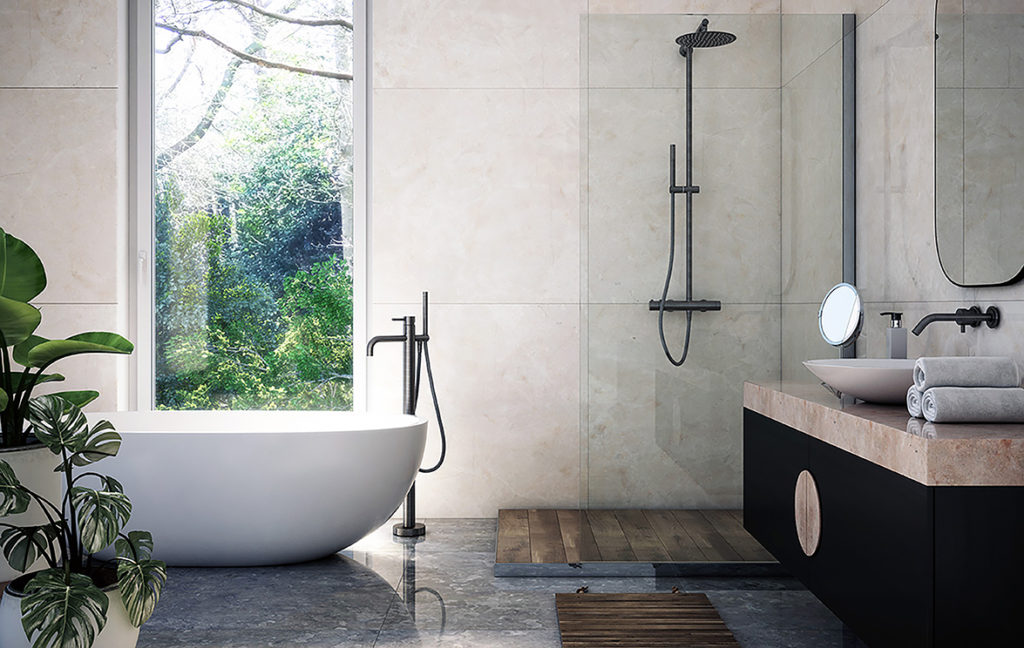 Make your bathroom a clean and uncluttered oasis.
Make your bathroom a clean and uncluttered oasis.
It’s important for a bathroom to be functional, “because water is connected to wealth in feng shui,” says Kramer-Perez.
She suggests regularly removing hair and other matter from your drains, and “using the time as an opportunity to think about other blockages in your life”—such as procrastinating at your job.
Your bathroom should be a place of cleansing and rejuvenation—so keep it clean, and don’t allow it to get cluttered up with toiletries. Adding wooden items such as soap dishes, as well as a few plants, can help balance the bathroom’s water energy with wood energy.
Cost: If you need to call a plumber to fix a clogged drain, you’ll typically pay $100–200 for a service visit.
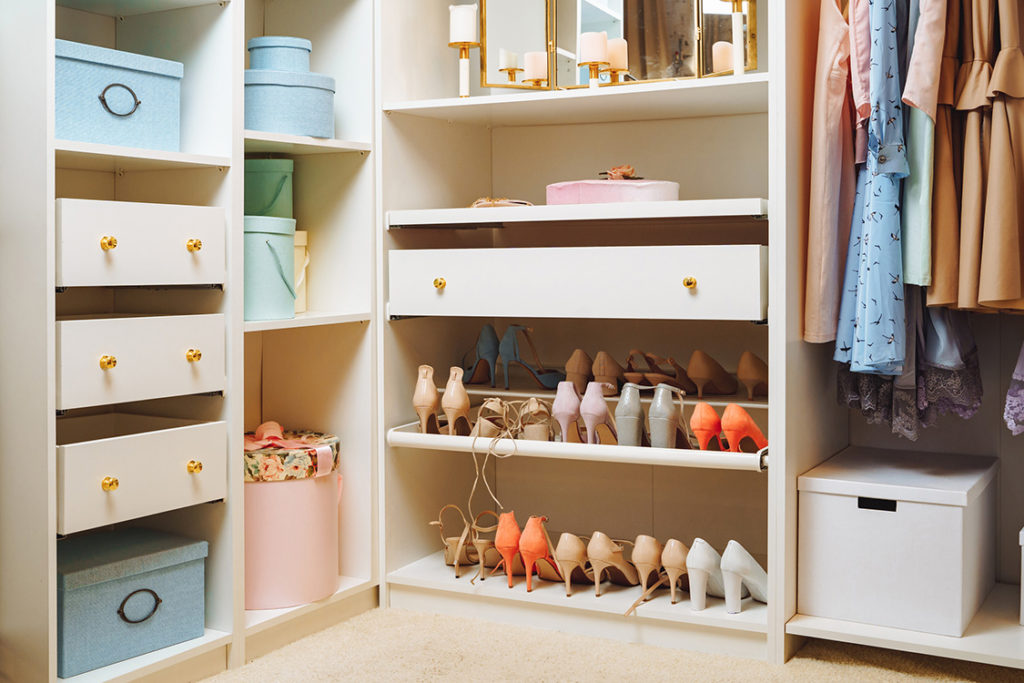 When you clear away clutter, there’s more room for energy to flow.
When you clear away clutter, there’s more room for energy to flow.
Having extra stuff littering a room isn’t just messy. It “disrupts the healthy flow of energy, which can lower your personal energy,” says Courty-Dan.
That doesn’t mean you have to dispose of your belongings and live a life of minimalism. “Get rid of anything you don’t need—anything broken or out of date,” Courty-Dan explains. “Throw away things you don’t like, even if they’re gifts. Qi is everywhere—having things you don’t like interferes with it.”
If friends or relatives insist on giving you knickknacks you can’t use, tell them you’d rather have gifts of experiences you can enjoy together. “Say, ‘What really matters to me is spending time with you,’ ” Courty-Dan suggests.
Cost: Decluttering is something you can do on your own—just donate, sell, or trash items you don’t want or never use, and find neat ways to store the rest. Or hire a professional organizer to help with a whole-house purge, starting at around $40 per hour.
Before you hire an interior designer, ask about their experience with feng shui and how long they’ve been practicing. Most designers learn about feng shui as part of their undergraduate education, but don’t necessarily specialize in it.
One well-respected credential is membership in the IFSG (International Feng Shui Guild), so try searching their consultant directory. A feng shui expert who’s also a registered interior designer will need a college degree, supervised work experience, and have passed the National Council for Interior Design Qualification exam.
A feng shui master will combine feng shui principles with the Chinese horoscope to figure out the best placements for your home, says Katy Byrne. They may divide your home into spaces based on a bagua map, which shows how different areas relate to different aspects of your life.
But there are different schools of feng shui thought, including Western feng shui, BTB feng shui, and classical feng shui. Ask your designer about their particular philosophy and what it means to them.
“Make sure you feel comfortable with the professional,” says Anjie Cho. “If you have doubts, it’ll make the design less effective.”
The average hourly rate for an interior designer is $30, according to ASID. But specialists often cost more, so the price of a feng shui consultant may be higher. Some interior designers offer an online consultation for around $150.
There are also feng shui consultants who aren’t interior designers but have studied the methodology deeply and can analyze and advise you on your home. A typical flat fee for that type of help would be $600–1,000.
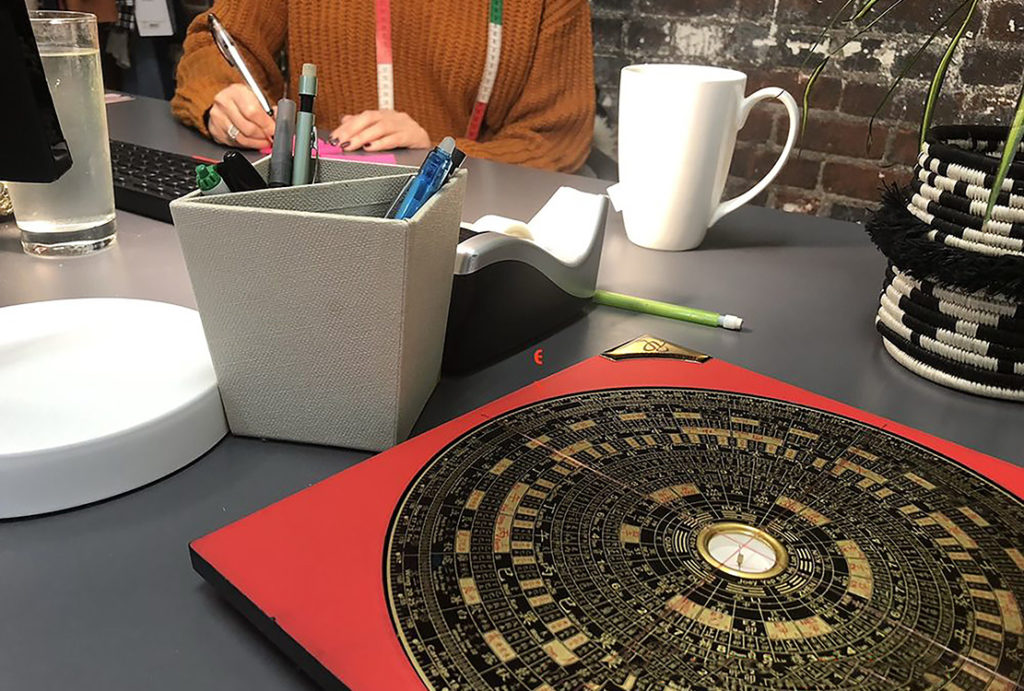 If you want to improve your home’s energy flow, a feng shui–trained design specialist can help.
If you want to improve your home’s energy flow, a feng shui–trained design specialist can help.
Photo: One World Feng Shui, Los Angeles
If you want a harmonious bedroom, friendly living room, or abundance-promoting home office, an interior designer or consultant specializing in feng shui can help you create the right space. Here, Yelp reviewers share some of their positive experiences.
Nitu [at Phoenix & Rose Feng Shui in Hoboken, New Jersey] is the real deal,” says Casey D. of Manhattan. “My wife and I brought her into our strangely shaped 2 BR and it was revelatory. From the organizational systems to the aesthetic guidance, Nitu’s expertise elevated not just our living space, but also our lives. I was honestly astonished at how quickly things changed.”
“Sandy Sue [of Happy Energy Coach in Phoenix] is so knowledgeable and compassionate with teaching feng shui,” says Gina D. “I’ve had a home consultation and taken the immersive course, both were outstanding. My home feels light; before it felt heavy, like it was dragging me down. The energy has definitely been lifted.”
“[My frustrations] went away with Betsy’s help at Affordable Interior Design [in New York City],” says Catherine C. “Her kind and comforting demeanor put me at ease while giving me the feng shui I desired. The process was so organized and malleable. I now have a peaceful zen space that I can call my getaway sanctuary.”
Find a feng shui design professional in your area.
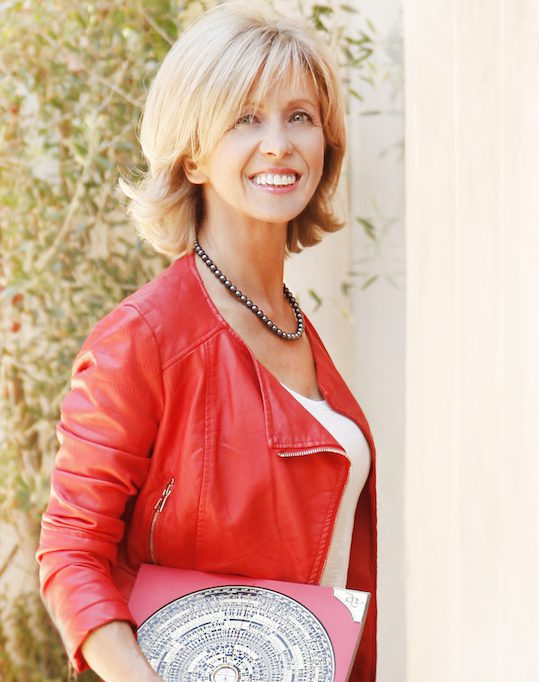
Francoise Courty-Dan is a Certified Classical Feng Shui consultant and a member of the International Feng Shui Guild. Over the years, she has helped a multitude of clients improve their wealth, health, career and relationships. She is the Founder of One World Feng Shui, a Los Angeles based consulting agency, available domestically and internationally for residential, commercial and corporate projects.
A dedicated Feng Shui master, she is enthusiastic about her mission to make the world a better place - one space at a time. An advocate of the power of the environment, she believes in balance and harmony and guides people live a happier, healthier and more inspired life.

Francoise Courty-Dan is a Certified Classical Feng Shui consultant and a member of the International Feng Shui Guild. Over the years, she has helped a multitude of clients improve their wealth, health, career and relationships. She is the Founder of One World Feng Shui, a Los Angeles based consulting agency, available domestically and internationally for residential, commercial and corporate projects.
A dedicated Feng Shui master, she is enthusiastic about her mission to make the world a better place - one space at a time. An advocate of the power of the environment, she believes in balance and harmony and guides people live a happier, healthier and more inspired life.
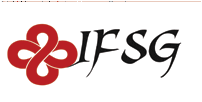
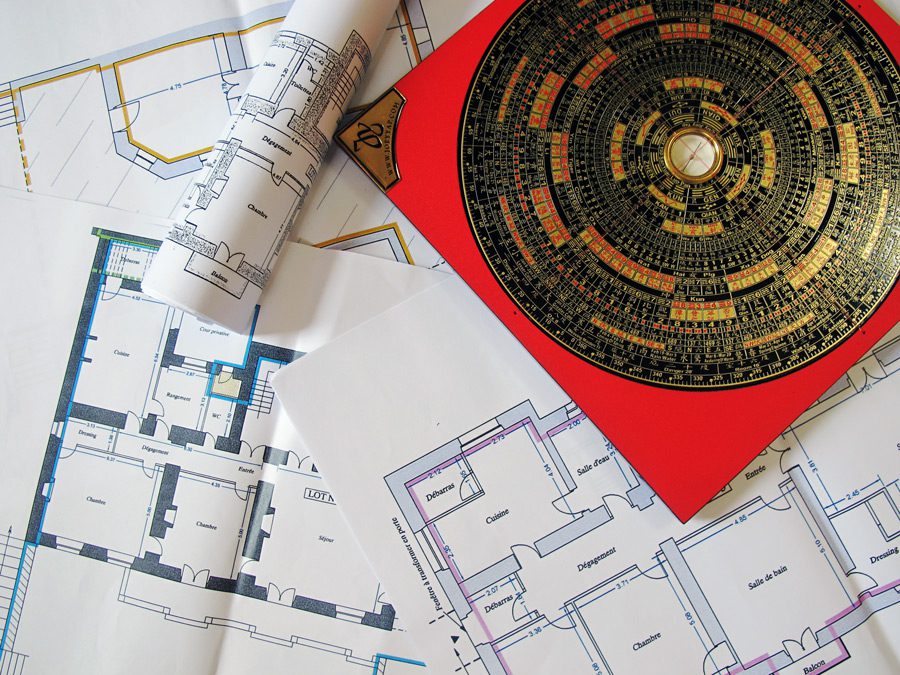
ARE YOU READY TO GET THE BEST OUT OF YOUR LIFE?
Feng Shui helps you live in harmony and fulfill your goals and dreams, Find financial comfort, Enhance your career, Improve relationships and Attract romance, Feel energized and healthier.
Would you like to schedule your complementary evaluation?
The Year of the Wood Dragon happens once every 60 years. The last time was in 1964 and the next one will be in 2084. The previous Dragon year was 2012 (Water
Thanksgiving is the time when many of us reflect on what we are grateful for. I want to personally thank you for your many expressions of loyalty, trust,
Here’s to a bright New Year to you and your loved ones and to what 2023 has yet to offer us! Over the holidays, we,